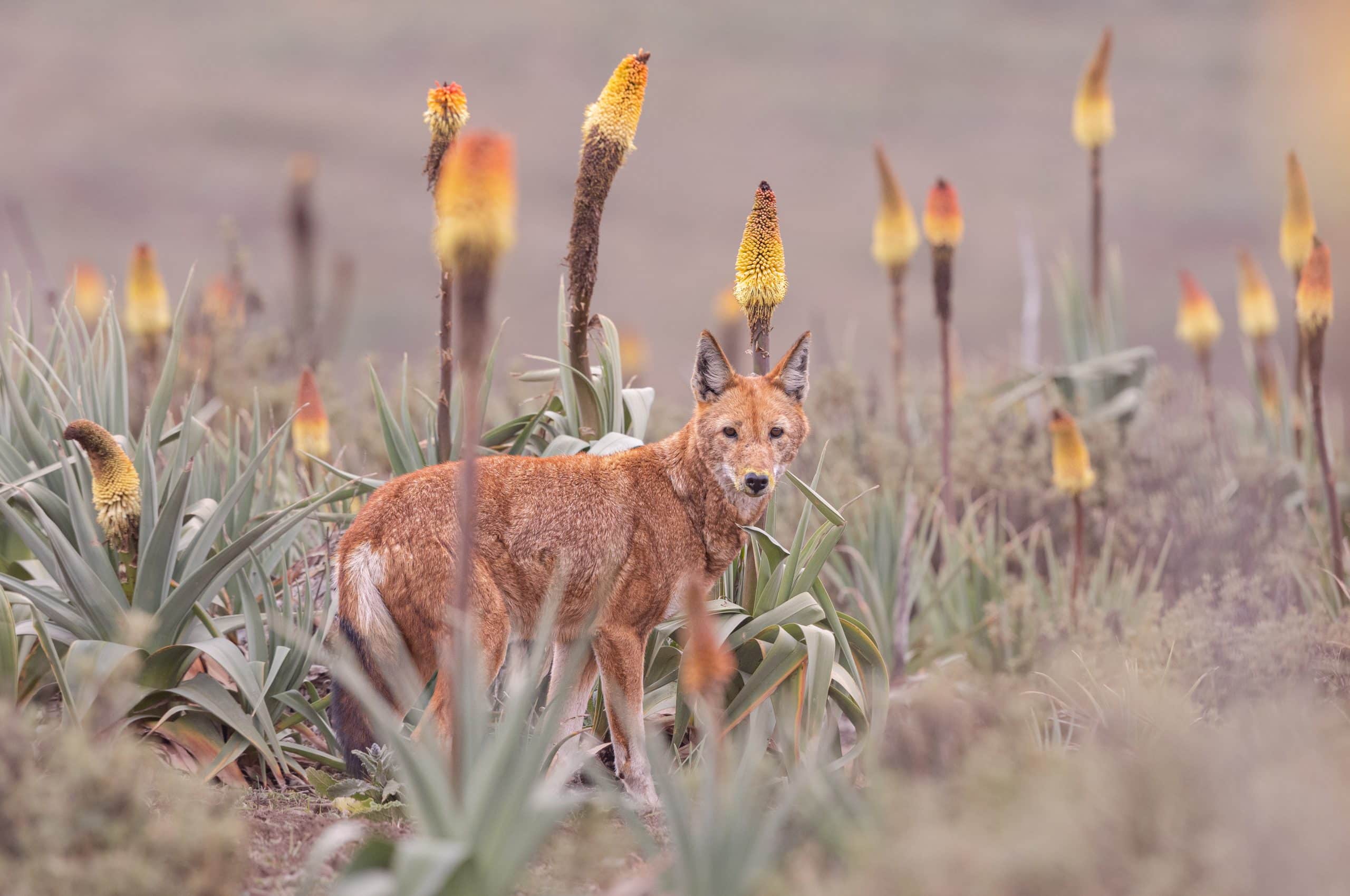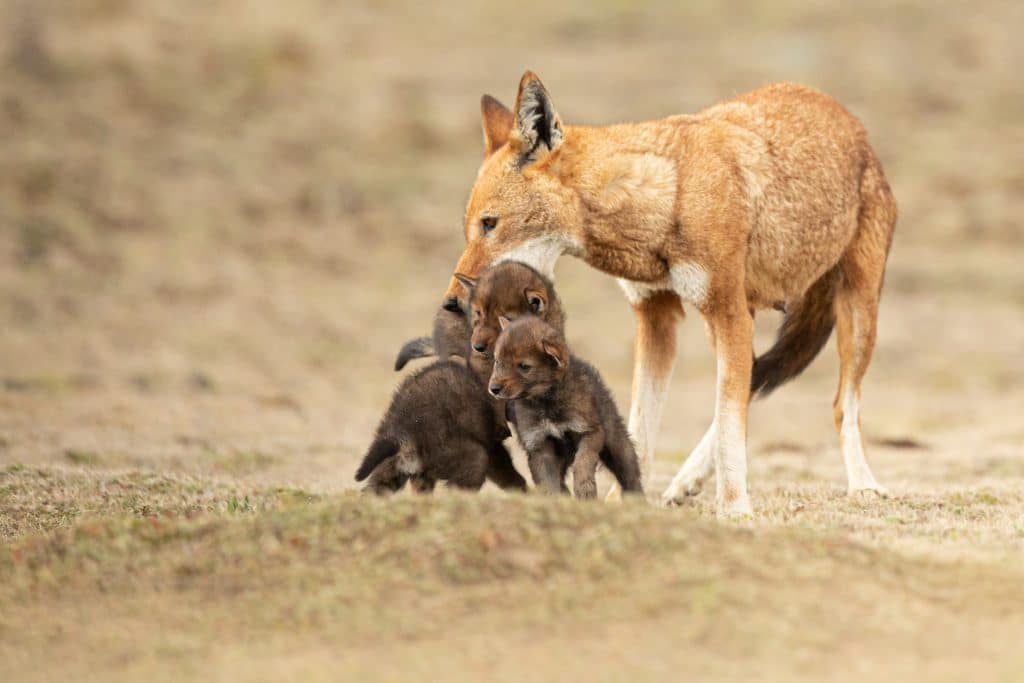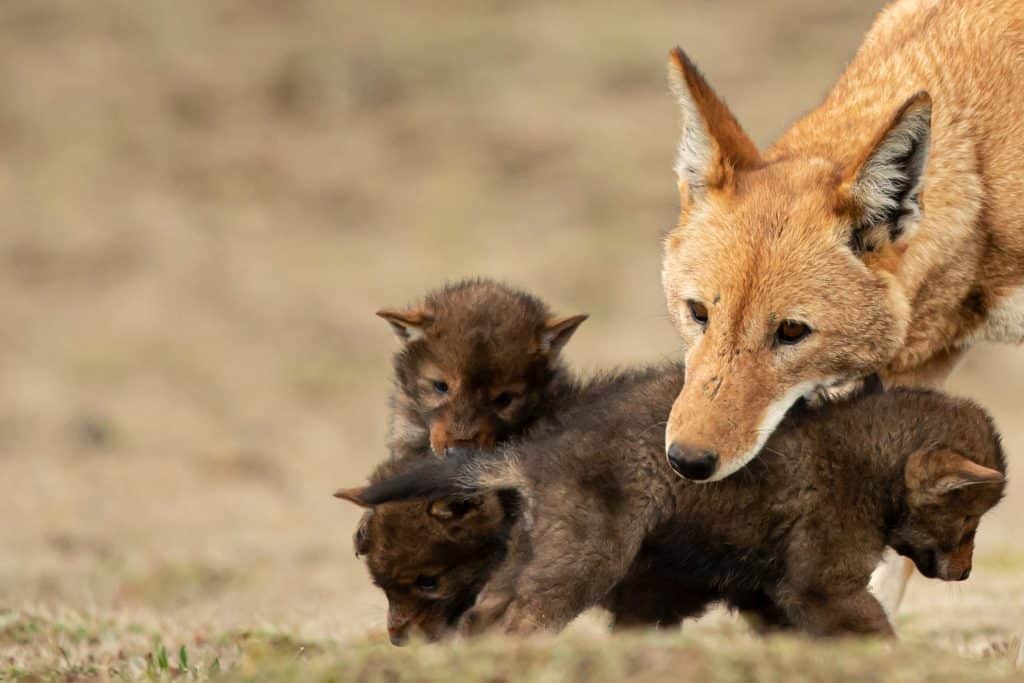Among the rugged landscape of Ethiopia’s Bale Mountains, the old wolf emerged from the den, six fuzzy pups weaving between her paws. Despite the threads of gray woven into her fur, her vivid red-orange frame still burned brightly against the blue sky. This wolf, known as “Tarura 2,” is one of approximately 500 Ethiopian wolves left in the wild. As Africa’s most endangered carnivores, the Ethiopian Wolf Conservation Program’s (EWCP) efforts to protect their fragile populations are critical to their survival.
Tarura 2 was one of the only survivors after her original pack was devastated by rabies. When EWCP found her in 2011, she became part of their first oral vaccination trial. The spread of diseases, like rabies, from local domestic dogs to wolves is a serious threat, so each year, EWCP vaccinates over 3,000 domestic dogs and as many wolves as possible. Their intervention helped Tarura 2 survive four more rabies outbreaks and rebuild her pack. Data collected from the Tarura pack taught EWCP more about wolf behavior, improving the effectiveness of their oral vaccination program. Tarura 2 produced 51 pups over the next decade, her pack growing so large that three new packs eventually split from it. This year, EWCP recorded 10 litters of pups born among these offshoot packs.
In her old age, Tarura 2 now looks after her grandchildren while their parents hunt. She carries a remarkable legacy and has contributed more to the survival of the Bale Mountain wolves—the species’ most critical population—than any other wolf. Tarura 2 is a walking example of the monumental difference that EWCP’s vaccination program has made for Ethiopian wolves.
Support Ethiopian Wolf Conservation Program


